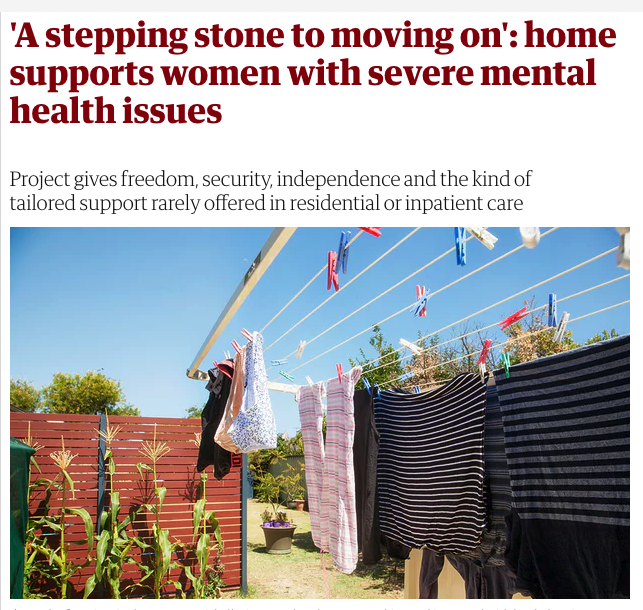Being able to do her own washing and having responsibility for her personal possessions symbolised the freedom Michelle Stevens* wanted but was denied in institutional care. Stevens features in my latest Guardian article (screenshot above). Her severe mental health problems meant she was in and out of residential care and mental health wards for a decade. She recalls staff shouting at her and living circumstances that were “very closed up and not nice at all”.
Today, however, Stevens says she is “much happier and freer”. She has a bedroom in a large double-fronted Victorian house – and she loves the garden at her supported living home in West Norwood, south London, which is run by social care provider Certitude. “[It] is cleaner than other places I have been, and has nicer facilities,” says Stevens.
She enjoys socialising – with the 11 other residents and locally – and for the first time in three years, she does her own washing and is trusted with her belongings.
The women-only housing is designed for those with enduring and complex mental health issues who may be stuck in restrictive environments. Certitude provides support while First Priority, a housing association, manages the tenancy agreements. The home opened in September 2016 and residents, who are mostly in their 30s and 40s, benefit from individualised support that is rarely offered in residential or inpatient care.
I’m really grateful to all the women who shared their experiences for the story and talked about the “good road ahead”, as Michelle put it, which now seems to be ahead of them. Read the rest of the article here.
*Not her real name

